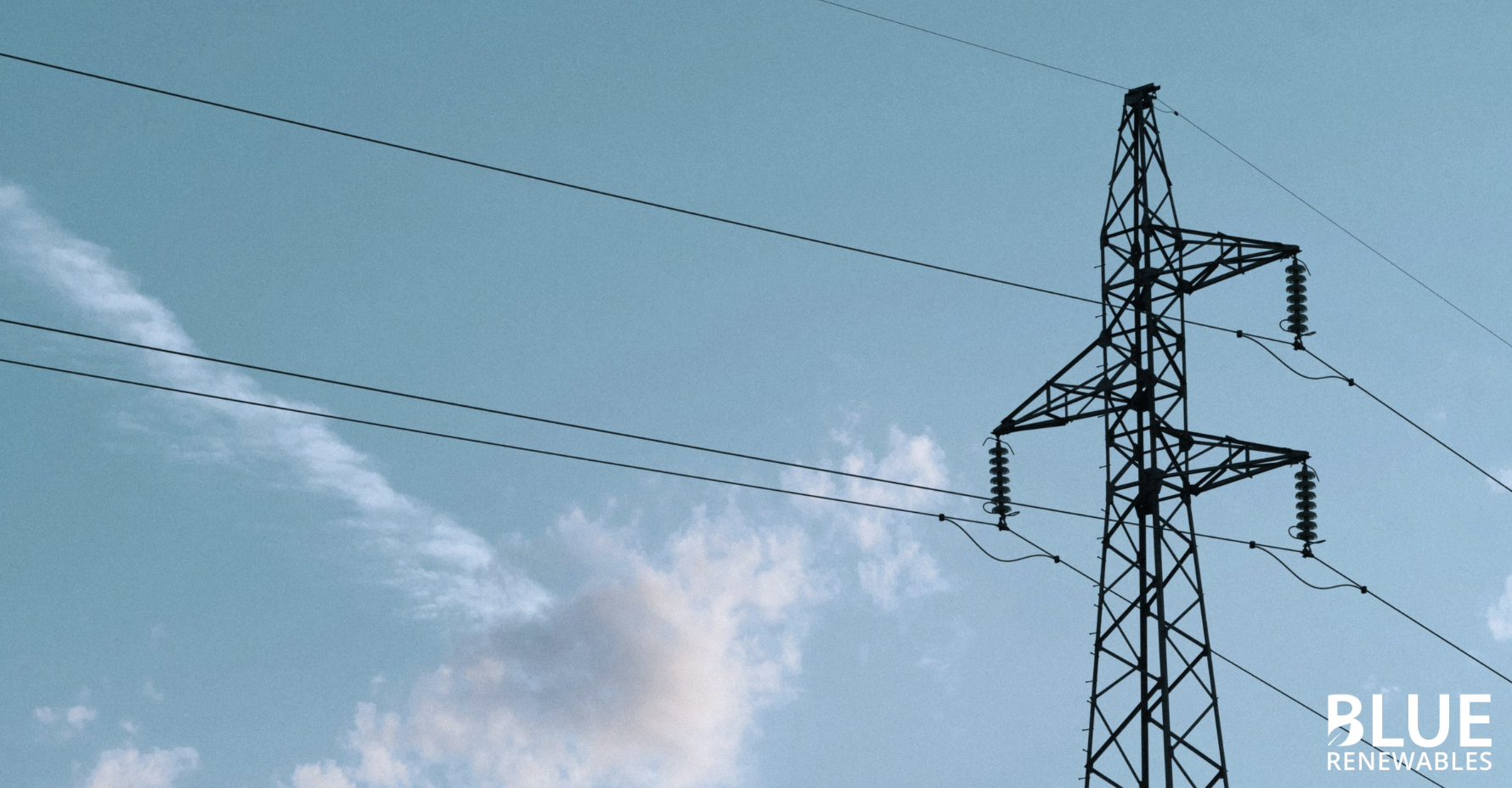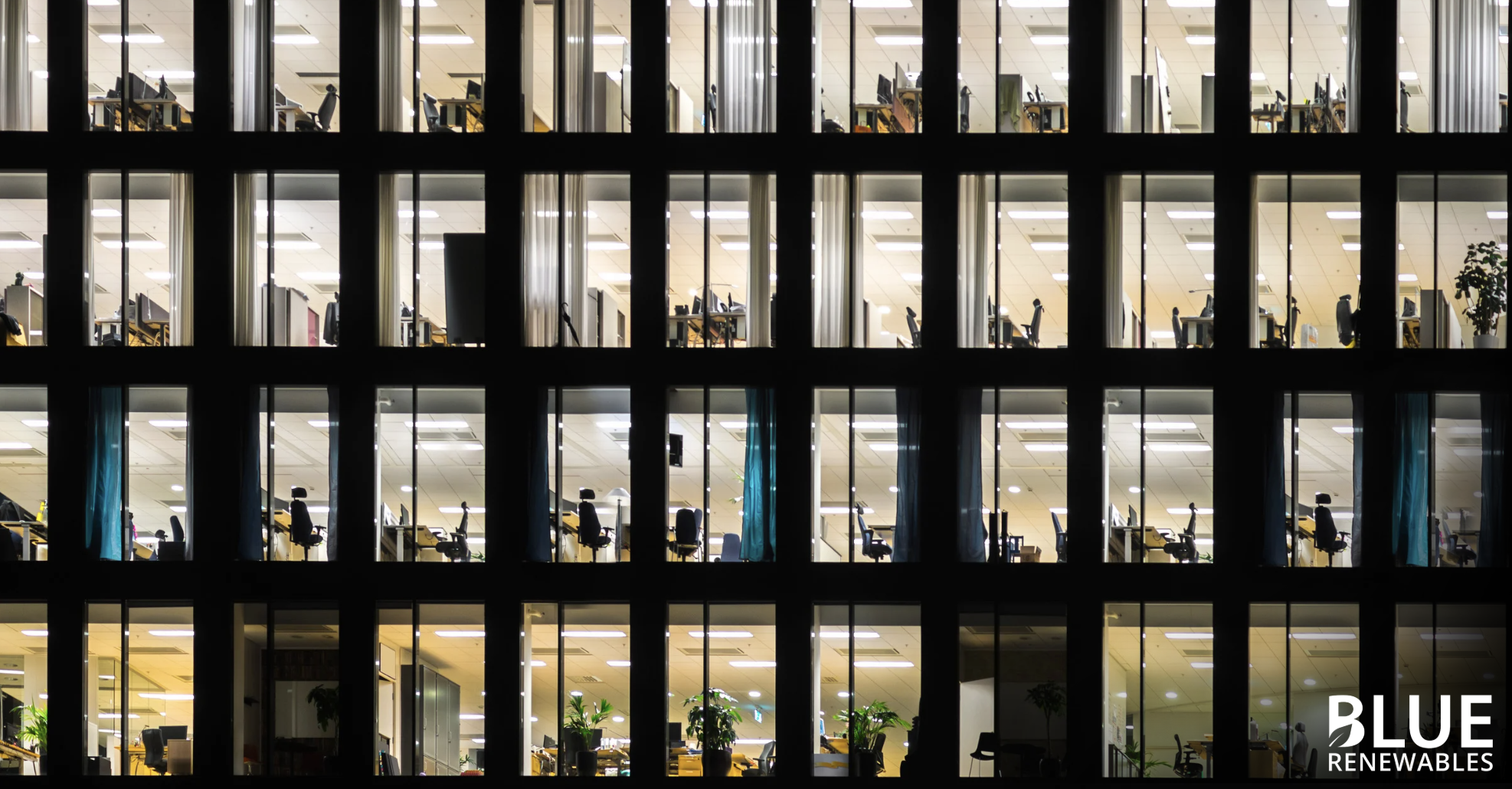Why 2026 Is the Year to Invest in Workplace EV Charging
With EV adoption accelerating across the UK, 2026 is the ideal time for businesses to invest in workplace EV charging. Discover how charging infrastructure supports fleet electrification, employee demand, sustainability and ESG goals, while reducing long-term costs and future-proofing commercial operations.
How Battery Storage Strengthens Business Continuity During the Cold Season
Battery storage keeps UK businesses resilient during winter grid instability. Ideal for cold storage, logistics, and manufacturing, it ensures energy reliability, cost savings, and continuity. Discover how smart battery systems support sustainability, ESG goals, and long-term efficiency through every cold season.
New Year, New Energy: Simple and Smart Ways to Boost Your Business’ Sustainability
A new year brings new opportunities — and for many businesses, that means setting clearer sustainability goals. Whether you’re just beginning your journey toward greener operations or already investing in renewable technologies, now is the perfect time to take a fresh look at your energy strategy.
Brightening the Dark Months: How LED Lighting Enhances Workplace Efficiency in Winter
Upgrading to LED lighting helps UK businesses cut energy costs, boost workplace efficiency, and meet sustainability and ESG goals. During winter’s darker months, LED systems deliver brighter, safer, and more productive workspaces while reducing carbon emissions and long-term expenses — a smart, cost-saving investment for every season.
From Field to Future: Powering the UK’s Food Industry Sustainably This Christmas
This Christmas, the UK’s food industry faces rising energy costs and soaring seasonal demand. Discover how solar power, battery storage, and LED lighting are helping food producers boost efficiency, cut carbon emissions, and power festive production sustainably — from farm to fork, all year round.
Winter Sun, Real Savings: How Solar Performs in the Colder Months
Solar power still performs efficiently in winter — even under cloudy UK skies. Modern panels capture daylight, not just sunshine, providing year-round savings and strong ROI for businesses. Discover how solar and battery storage reduce winter energy costs, boost sustainability, and deliver reliable performance in colder months.
Sustainability Reporting Made Simple: How to Track Your Renewable Impact
Sustainability reporting is essential for proving your renewable energy impact and meeting ESG goals. Learn how to track performance with key metrics, data dashboards, and smart reporting tools. Discover how businesses can simplify sustainability reporting, improve transparency, and measure real progress toward Net Zero.
How to Build a Corporate Net Zero Roadmap That is Actually Sustainable
Building a corporate Net Zero roadmap requires more than ambition — it demands action. Learn how UK businesses can set science-based sustainability targets, improve energy efficiency, invest in renewables, and use data to track ESG progress. Discover practical steps to cut carbon, reduce costs, and achieve long-term sustainability goals.
Lighting the Future: How LED and Smart Sensors Create Sustainable Workplaces
Upgrading to LED lighting with smart sensors is one of the easiest ways for UK businesses to reduce energy use, lower carbon emissions, and improve workplace comfort. Modern LEDs use up to 80% less power, while smart sensors cut waste by lighting only when needed — helping organisations save money and support Net Zero goals.
Smart Buildings, Smarter Businesses: Using Data to Drive Energy Efficiency
Smart buildings use data, automation, and renewable energy to cut costs and carbon emissions. By integrating smart controls, solar power, and battery storage, UK businesses can monitor and optimise energy use in real time — improving efficiency, reducing waste, and supporting Net Zero and ESG goals with measurable results.
PPAs Explained: How to Go Solar With Zero Upfront Cost
Looking to install solar panels but want to avoid the upfront cost? A Power Purchase Agreement (PPA) could be the answer. PPAs allow UK businesses to adopt renewable energy with no capital expenditure, providing immediate access to clean, low-cost electricity. Under a PPA, your solar provider funds, installs, and maintains the system on your site, while you simply buy the power it generates at a fixed, lower-than-market rate. This approach helps reduce energy bills, stabilise costs, and cut carbon emissions — all without the risks or responsibilities of system ownership. Whether you’re aiming to reach Net Zero, strengthen ESG performance, or protect your business from rising energy prices, a solar PPA offers a smart, sustainable solution. Discover more about how your organisation can go solar with zero upfront cost.
Solar Myths Busted: What Businesses Still Get Wrong About Renewable Energy
Despite the growing adoption of solar across the UK, several long-standing myths still stop businesses from fully embracing renewable energy. Many organisations see solar as expensive, complex, or unreliable — when in reality, modern systems are more efficient, affordable, and accessible than ever before.
It’s time to set the record straight. Here are some of the most common solar misconceptions and the facts that prove otherwise.
Grid Independence: How Battery Storage Transforms Solar Systems
For many UK businesses, solar power is the first major step toward energy independence. But while solar panels generate electricity efficiently during daylight hours, the real transformation happens when that energy can be stored and used whenever it’s needed. That’s where battery storage comes in — turning a solar system from a daytime generator into a 24-hour energy solution.
The True ROI of Solar for UK Businesses: Beyond the Payback Period
When it comes to investing in solar energy, one of the first questions businesses ask is: “What’s the payback period?”
It’s a fair question — but it only tells part of the story.
While many organisations understandably focus on the financial return and years-to-payback, the true ROI of solar extends far beyond the spreadsheet. Solar power delivers ongoing value that impacts operational stability, sustainability, brand reputation, and long-term business resilience.
Demystifying Inverters: Why They Matter for Energy Efficiency
When most people think of solar energy, they picture the sleek panels on rooftops or solar farms. But behind the scenes, one component plays a pivotal role in making solar power usable and efficient: the inverter.
Often overlooked, inverters are the beating heart of any solar energy system. Without them, solar panels can’t do their job. And without the right inverter, you may not be getting the energy performance or return on investment you expect.
In this article, we demystify what inverters do, how they work, and why they’re key to optimising energy efficiency in your solar setup.
Solar Power Amid Global Uncertainty – Why UK Businesses Are Turning to Renewables
As international tensions escalate and the global energy landscape grows increasingly unpredictable, UK businesses are feeling renewed pressure to take control of their energy future. Recent unrest in oil-producing regions has shown once again how volatile global energy pricing can be—serving as a stark reminder of just how vulnerable fossil fuel markets remain to overseas disruption.
For commercial and industrial organisations, the consequences of these price shocks are clear: higher operational costs, tighter margins, and unpredictable energy bills. In this environment, solar power isn’t just a sustainability tool—it’s a shield against volatility.
What Is an EPC and Why It Matters for Sustainable Commercial Property Management
At Blue Renewables, we believe that achieving energy efficiency is not just a compliance exercise — it’s a core part of building a more sustainable future. That’s why we support commercial clients across the UK in understanding and improving their Energy Performance Certificates (EPCs) as part of a broader drive toward renewable energy, clean energy adoption, and long-term corporate responsibility.
Why Upgrade to LED lighting? Why Businesses are ‘Switching On’ to LED Upgrades
Why Upgrade to LED Lighting? Upgrading to LED lighting is one of the quickest ways to improve energy efficiency in commercial buildings. Traditional lighting systems like halogen or fluorescent tubes are not only energy-hungry but also require frequent maintenance and replacement. An LED upgrade offers longer lifespan, better light quality, and significantly lower energy consumption — up to 80% less in some cases.
US Tariffs: What They Mean for the Sustainable Energy Sector — and Why UK Businesses Should Act Now
The recent announcement of sweeping tariffs by the US government on a range of clean energy technologies — including solar panels, electric vehicles, and battery components — marks a turning point in the global sustainable energy landscape.
Read more about what this could me for UK businesses and why acting now is a shrewd move.
DEFRA Announces 2025 Funding for Sustainable Farming and Net Zero Innovation
The UK farming industry is set to benefit from new funding opportunities in 2025 as DEFRA (Department for Environment, Food & Rural Affairs) strengthens its commitment to innovation, sustainability, and net-zero initiatives. These funding programmes are designed to support farmers, growers, and foresters in adopting cutting-edge technologies and sustainable practices that enhance productivity while minimizing environmental impact.




















